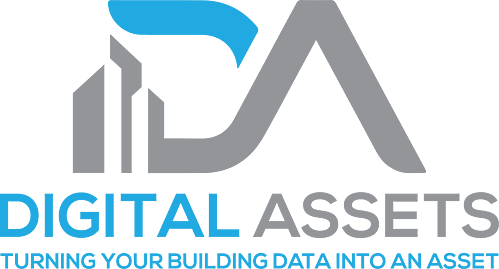Role of the Master Systems Integrator in HVAC Controls

1. Connect: Establishing Data Connectivity
The MSI begins by enabling connectivity to HVAC control systems and other building systems to access critical data streams. This foundational step ensures interoperability and secure communication across disparate systems.
• Connectivity Methods: Integrates HVAC systems using protocols like BACnet, Modbus, or LonWorks, ensuring compatibility with IoT devices and IT/OT networks.
• IT/OT Convergence: Bridges operational technology (OT) networks (e.g., HVAC controllers, sensors) with information technology (IT) infrastructure, collaborating with internal or external IT teams to ensure seamless data flow.
• Cybersecurity: Implements robust cybersecurity measures, including zero-trust networks (e.g., Tempered, Tosi Box), OT network segmentation, and secure remote access for buildings to protect HVAC systems from cyber threats.
• Asset Inventory: Maintains a comprehensive inventory of IoT devices (e.g., thermostats, sensors, actuators) to track and manage connected assets.
• Vendor Access Management: Oversees secure access for third-party vendors interacting with HVAC systems.
• Edge Compute and Network Fabric: Deploys edge computing solutions and network fabric to support real-time data processing and connectivity.
• Cloud Integration: Leverages platforms like Azure IoT and Google IoT for scalable, cloud-based connectivity and data management.
2. Collect: Gathering and Organizing Data
Once connectivity is established, the MSI collects data from HVAC systems and other integrated systems to enable analysis and optimization.
• Data Storage: Manages on-premises and off-premises data storage solutions, including Data Lakes and Data Warehouses, to handle large volumes of HVAC performance data (e.g., temperature, humidity, energy consumption).
• System Integration: Connects disparate systems (e.g., HVAC, lighting, fire, space utilization, CMMS) to create a unified data ecosystem, ensuring the MSI acts as the central hub for data aggregation.
• Data Management: Performs data mining, data modeling, metadata creation, and ontology development to structure HVAC data for meaningful insights.
• Data Normalization: Standardizes data formats across systems to ensure consistency and usability.
• Independent Data Layer: Establishes an independent data layer to decouple data from proprietary systems, enabling flexibility and scalability.3. Consume: Analyzing and Utilizing Data
With data collected, the MSI consumes it to derive actionable insights, optimize HVAC performance, and enhance building operations.
• Data Analytics: Uses advanced analytics and fault detection and diagnostics (FDD) to identify inefficiencies, equipment issues, or energy waste in HVAC systems.
• Data Modeling and Tagging: Implements data modeling, metadata, and ontology frameworks to categorize and interpret HVAC data (e.g., tagging sensor data for temperature or airflow).
• Single Pane of Glass: Provides a unified dashboard (MSI single pane of glass) for facility managers to monitor and control HVAC and other systems in real time.
• Building OS: Deploys a building operating system to centralize control and visualization of integrated systems.
• Automated Reporting: Generates reports on HVAC performance, energy usage, and system health for stakeholders.
• Energy Management: Implements strategies like demand-controlled ventilation or load shedding to optimize energy use.
• Managed Services: Offers services where the MSI consumes data on behalf of the client, providing recommendations based on insights.
• AI and Adaptive Control: Leverages artificial intelligence to enable adaptive HVAC control strategies, such as predictive temperature adjustments based on occupancy patterns.
• Automated Commissioning: Uses data-driven tools to streamline commissioning of HVAC systems, ensuring optimal performance from the start.4. Correct: Taking Action Based on Data
The MSI uses insights from consumed data to take corrective actions, shifting from reactive to proactive management of HVAC systems.
• Corrective Actions: Addresses issues identified through analytics, such as recalibrating sensors, adjusting setpoints, or repairing faulty equipment.
• Managed Services: Coordinates with MEP (mechanical, electrical, plumbing) contractors to implement fixes and track corrections.
• Asset Management: Logs data on corrections and maintenance activities to build a history of asset performance.
• Energy Savings: Realizes energy management savings by implementing data-driven optimizations, such as fine-tuning HVAC schedules.
• Proactive Management: Shifts facility operations to a proactive state by predicting and preventing issues before they occur, reducing downtime and costs.5. Create: Solutions to Generate More Data
The MSI creates new systems, upgrades, and solutions to enhance HVAC controls and generate additional data streams for improved building intelligence.
• Programming and Engineering Services: Designs and programs HVAC control systems to meet specific building needs, including custom logic for energy efficiency or indoor air quality (IAQ).
• Product Sales and Services: Provides hardware (e.g., sensors, controllers) and software solutions to enhance data collection and system performance.
• Vertical Solutions: Implements specialized solutions, such as IAQ monitoring or occupant comfort systems, to address specific building requirements.
• Retrofits and Upgrades: Upgrades legacy HVAC systems with modern controls and IoT-enabled devices to improve data granularity and system efficiency.
• Building Automation Contractor Role: Acts as a building automation contractor, delivering turnkey solutions for HVAC system creation and integration.6. Consult: Providing Expert Guidance
The MSI serves as a trusted advisor, leveraging their expertise in HVAC controls and BIOT to guide clients through complex system challenges and long-term strategies.
• Programming and Engineering Services: Offers expert programming and engineering support for HVAC control systems, ensuring alignment with client goals.
• New Builds: Advises on the design and integration of HVAC controls for new construction projects, ensuring scalability and future-proofing.
• Long-Term Planning: Develops strategies for sustainable building operations, including energy management and system upgrades.
• BIOT Expertise: Positions the MSI as the go-to expert in building intelligence and operational technology, addressing complex system integration and optimization challenges.
